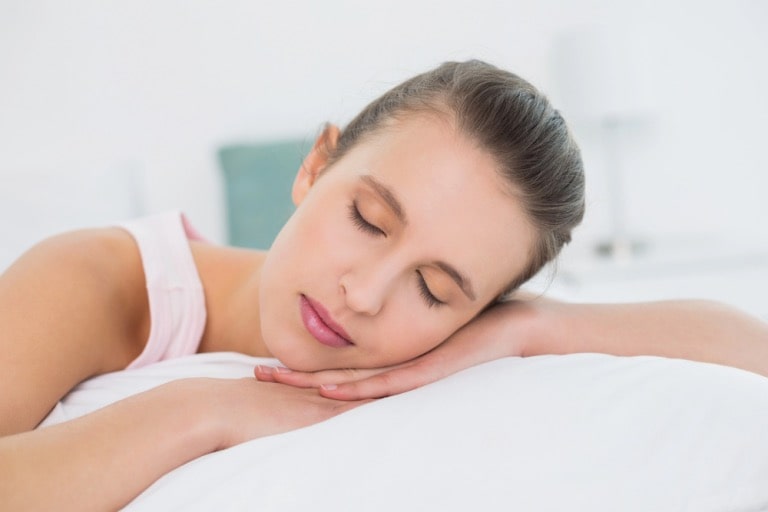A good night’s sleep influences everything from energy levels and mood to cognitive performance and immune function. The positives of enjoying quality sleep and the negatives associated with poor sleep are well documented, yet many of us struggle to achieve a restful night’s sleep.
Busy lifestyles, poor habits, and stress negatively impact our sleep quality. You are about to learn some tried and tested tips and techniques for achieving the best possible quality sleep.
Understanding Common Sleep Issues
Recognizing common sleep issues that disrupt rest is essential before exploring tips for better sleep. Insomnia is one of the most prevalent sleep disorders. Characterized by difficulty falling or staying asleep, anxiety, dietary choices, irregular sleep schedules, and stress can trigger insomnia.
People living with insomnia often exacerbate their symptoms by watching television, browsing the internet, or playing on the best online sports betting phone apps. These are all enjoyable pastimes but not ideal for when you are trying to sleep because they keep your brain active.
Sleep apnea is a potentially serious condition where breathing repeatedly stops and restarts during sleep. Although many people with sleep apnea don’t realize they have it, sufferers can wake for a few seconds dozens of times each night, significantly affecting sleep quality.
If you suspect you have a medical condition affecting your sleep, it is essential to consult a healthcare professional. However, for most, the solution to a good night’s sleep lies in making simple yet effective changes to your routines and habits.
A Consistent Bedtime Routine is Crucial
Humans thrive on routine, so a regular sleep schedule helps keep your internal clock (often called your body clock) in sync, making it easier to fall asleep and wake up in the morning. Aim to go to bed and wake up at the same time each day, including weekends.
Of course, there will be times when you need some extra sleep, but being consistent in your bed and waking up can significantly reduce the time required to fall asleep.
Studies show that people with a pre-sleep routine fall asleep faster, sleep longer, and have higher-quality rest than those who do not have such a routine. Reading a book, listening to calming music, taking a shower or a bath, or practicing meditation can all let your body know it is time to wind down and prepare to sleep.
It is recommended that you avoid stimulating activities like watching Netflix shows and movies, scrolling through social media, and strenuously exercising before bed.
You want your body to get ready for sleep, not heighten your senses. In addition, try avoiding caffeine and nicotine close to bedtime because both are powerful stimulants that reduce your ability to sleep.
Creating an Optimal Sleep Environment
Medical issues and a lack of a bedtime routine aside, the number one reason for poor sleep quality is a person’s sleeping environment. Your bed should be a haven for rest, so upgrade your mattress and pillows if they are old or uncomfortable.
Pay close attention to the temperature of your bedroom. It’s common knowledge that a cooler room, around 60-67 degrees Fahrenheit, is the ideal temperature for falling and remaining asleep.
The perfect bedroom is quiet, dark, and cool. Light can interfere with your body’s production of melatonin, a hormone that plays a crucial role in regulating humans’ sleep-wake cycle.
Consider blackout curtains or a sleep mask to help create a dark environment, and avoid lights, particularly blue light emitted from mobile phones, tablets, and television screens.
Manage Your Stress Levels During the Day for Better Sleep
Anxiety and stress play havoc with our sleep schedules, mainly because stress causes our bodies to produce cortisol, a hormone infamous for disrupting sleep by increasing alertness. Managing and reducing stress can increase your chances of enjoying a good night’s sleep.
Everyone is different, but a handful of things are documented to alleviate stress. For example, regular exercise helps regulate the cortisol in our bodies, while the physical exertion from exercising can tire you out. Additionally, keeping fit can help you lose excess weight, which can help improve sleep apnea symptoms if you suffer from it.
While exercise hugely benefits sleep quality, avoid vigorous exercise close to bedtime because it can have a stimulating effect.
Consider practicing guided meditation or breathing exercises to help you relax. The 4-7-8 breathing technique, where you breathe in for four seconds, hold your breath for seven seconds, and exhale for eight seconds, is known to lower anxiety.
Changing your daily routine can help you lead a less stressful life, which is conducive to a great night’s sleep. For example, don’t overcommit yourself; allow yourself enough downtime to perform activities you enjoy.
Spend time with friends and family and do things other than work, and you will quickly see the anxiety and stress leave your body.
Conclusion
Poor quality sleep is the bane of millions of people’s lives, but an excellent night’s rest is within reach for most of them. Establishing a consistent bedtime routine, including going to bed and waking up at the same time, helps your natural sleep-wake cycle, making falling asleep and waking up easier.
If you create a bedroom that promotes rest and tranquility, your chances of a great, refreshing sleep increase. Ensure your mattress and pillows are comfortable and supportive, the room is dark and quiet, and the room is cool.
If possible, don’t watch television or scroll through your phone because the blue light from these screens is known to reduce our body’s production of the sleep hormone melatonin.
Be aware that chronic sleep problems can indicate underlying health issues, so they should not be ignored. Consult a healthcare professional if your sleep issues persist for your peace of mind.
